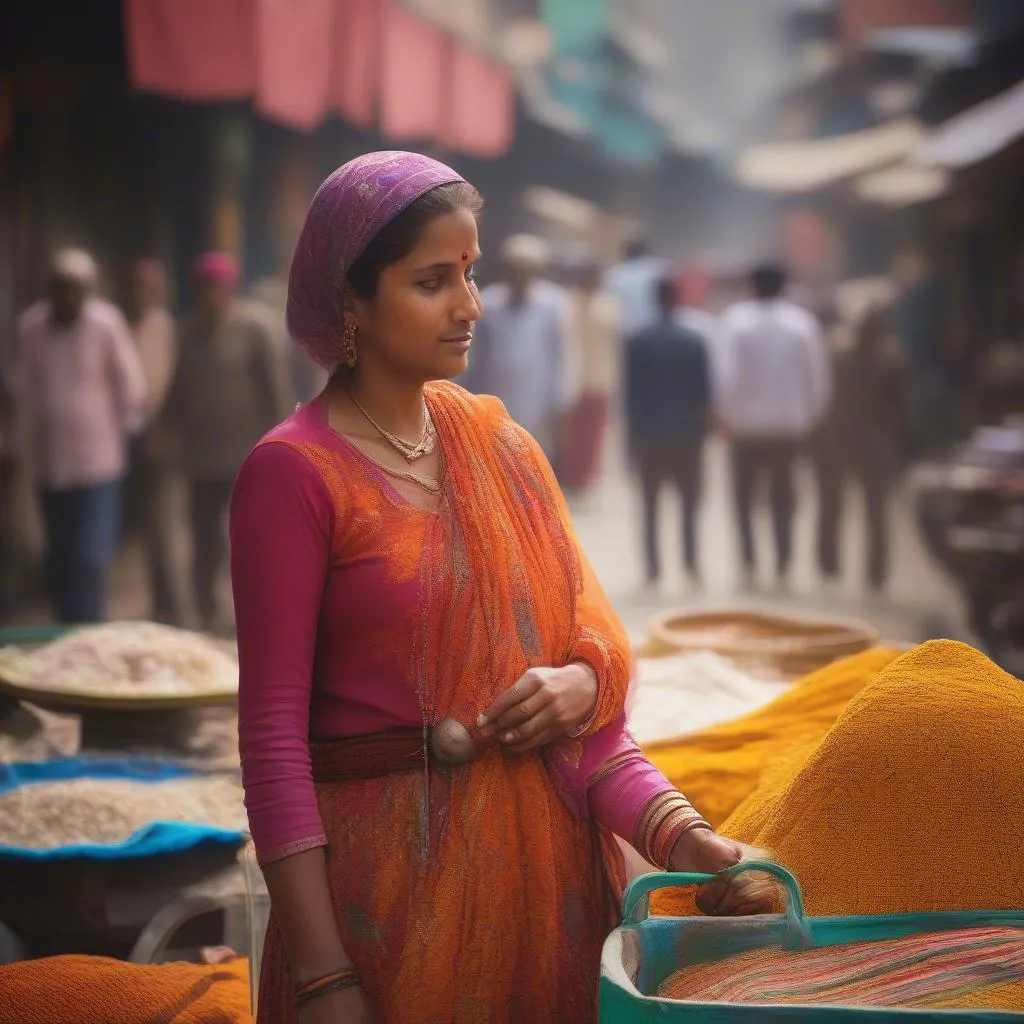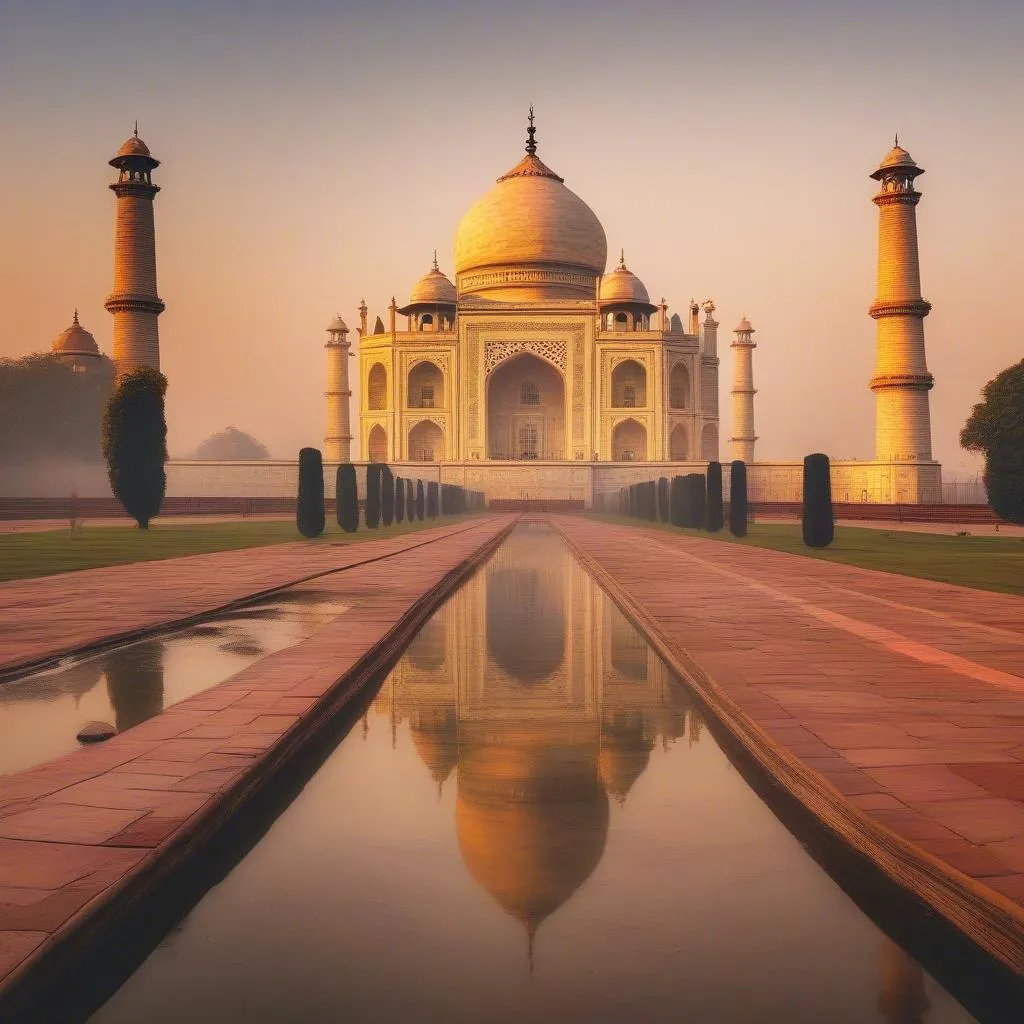“India: the land of vibrant colors, enchanting spices, and ancient wisdom!” That’s what Maya, a colleague at travelcar.edu.vn, would often say. She had just returned from a backpacking trip through Rajasthan, her eyes sparkling with stories of majestic forts, bustling bazaars, and the kindness of strangers. Her enthusiasm was infectious, but it also made me wonder, “Is India Safe To Travel?”
It’s a question that pops up frequently, especially for first-time visitors. The truth is, like any country, India has its own set of challenges. However, with a little awareness and preparation, you can have an incredible and safe journey through this captivating land.
Understanding Safety in India
When discussing safety, it’s important to remember that India is a vast and diverse country. Experiences can vary greatly depending on the region, time of year, and even your own travel style.
Common Concerns and How to Address Them
Let’s address some common concerns head-on:
1. Petty Theft:
This is probably the most common safety issue tourists face in India. To minimize risk:
- Be mindful of your belongings: Just like in any crowded place, keep your valuables close, preferably in a money belt worn under your clothing.
- Avoid flashing expensive jewelry or gadgets: Opt for a more low-key approach to blend in.
- Use hotel lockers: When exploring, secure your larger valuables in your hotel’s safety deposit box.
2. Scams:
Unfortunately, scams exist, but a little vigilance goes a long way:
- Negotiate and agree on prices beforehand: This applies to taxis, rickshaws, and even street vendors.
- Be wary of overly friendly strangers: While Indian hospitality is renowned, be cautious of unsolicited offers of help or guidance that seem too good to be true.
- Book tours and transportation through reputable agencies: Travelcar.edu.vn offers reliable recommendations and resources for planning your trip.
3. Traffic:
Indian traffic can be chaotic, but there are ways to navigate it safely:
- Choose pre-booked transport or rideshares whenever possible: This reduces the hassle of bargaining and ensures a certain level of safety.
- Be cautious when crossing roads: Traffic doesn’t always stop for pedestrians, so be assertive and make eye contact with drivers.
4. Food and Water Safety:
- Stick to bottled water: Always drink bottled water and ensure the seal is unbroken.
- Choose your food stalls wisely: Opt for busy stalls with a high turnover of fresh food.
Is India Safe for Solo Female Travelers?
This is a question many women ask, and the answer, while not simple, is not a definitive “no.” India has made strides in women’s safety, but extra precautions are still advisable:
- Dress modestly: While you don’t have to cover yourself entirely, dressing conservatively can help you avoid unwanted attention.
- Consider staying in female-only accommodations: Many hostels and guesthouses offer women-only dorms or rooms.
- Learn a few basic Hindi phrases: Being able to communicate even on a basic level can be empowering.
 Solo Female Traveler in India
Solo Female Traveler in India
Planning for a Safe and Enjoyable Trip
Now that we’ve addressed some concerns, let’s focus on proactive safety measures:
1. Research Your Destination:
India is incredibly diverse! The more you know about the specific regions you’ll be visiting, the better prepared you’ll be. Check for any local customs, traditions, or potential safety concerns specific to that area.
2. Share Your Itinerary:
Always let someone back home know your travel plans. Regularly check in with them and update them on any changes.
3. Get Travel Insurance:
This is non-negotiable! Travel insurance provides financial protection in case of medical emergencies, lost luggage, or trip cancellations.
4. Embrace Local Advice:
Don’t hesitate to ask locals for advice on safe areas, transportation options, or recommended eateries. They can offer invaluable insights.
The Rewards Outweigh the Risks
While it’s important to be aware of potential risks, don’t let them overshadow the incredible experiences that await in India. From the breathtaking Taj Mahal to the serene backwaters of Kerala, India offers a tapestry of sights, sounds, and experiences that will stay with you long after you’ve returned home.
 Taj Mahal at Dawn
Taj Mahal at Dawn
A Little Feng Shui for Your Journey
In Feng Shui, the element of earth is associated with travel. Carry a small stone or crystal from home to ground you and provide a sense of security throughout your journey.
Travelcar.edu.vn: Your Guide to India
For more information, tips, and resources on traveling safely and responsibly in India, visit TRAVELCAR.edu.vn. We offer a wealth of information, from detailed guides on destinations like Mumbai and Kerala to insightful articles on navigating Indian culture.
Have you traveled to India? Share your experiences and tips in the comments below!

